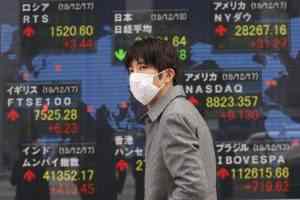
Forex trading psychology: Introduction to Trading Psychology
![]()

It can cause traders to enter positions that have a high amount of risk or stay in a position for too long. These tips are by no means everything that a trader needs to know about trading psychology or how to improve emotional responses to the market developments. However, taking them into account can still have a significant effect on how they react to the payouts or losses and how they make trading decisions. Market conditions might change but Forex market psychology remains the same.
![]()
This is perfectly natural and an essential part of the human experience. Your humanity is one fact that can’t be simply forgotten when engaging the foreign exchange markets. Another piece of day trading advice is to be as adaptive as you can.
How to improve trading psychology
You can’t force markets to give you trading opportunities. On many occassions, there are days without apearance of reasonable setups. When not in active positions, most traders think that they are wasting time. They feel bored and unpoductive, which makes them open poorly planned orders and overtrade.
Please note that foreign exchange and other leveraged trading involves significant risk of loss. It is not suitable for all investors and you should make sure you understand the risks involved, seeking independent advice if necessary. However, stock markets do also attract impulsive traders who make decisions based on stories that capture public attention. Forex markets are notoriously volatile, which means they move quickly and profits can turn to losses in the blink of an eye. The market tends to attract quick-thinking and disciplined participants. It doesn’t necessarily matter which of the personality traits you have, because they can all be managed.
Besides, they can even minimize the amount of loss they take. As for the anger, it’s also an incremental part of our emotional build. When the market goes against the trader and causes them to lose funds, anger tends to get hold of them in various ways. This, in turn, clouds their perception of market development and makes them open/close positions based on emotions, instead of calculations.
76.46% of retail investor accounts lose money when trading ᏟᖴᎠs with this provider. Nial Fuller is a professional trader, author & coach who is considered ‘The Authority’ on Price Action Trading. He has taught over 25,000 students via his Price Action Trading Course since 2008.
The market isn’t going anywhere and there will be lots of other opportunities to make money. Where possible, traders should attend webinars, trading seminars, and conferences to share and interact with other traders and finance professionals. Market psychology refers to the prevailing sentiment of investors at any given time and can impact market direction regardless of the fundamentals. As noted in the article, it is as important to have a proper mindset as it is to have proper trading education/experience. This way, you’ll be able to better cope with sudden changes in the market or other events that cause you to have emotional responses. The first priority is not to blow up your trading account.
![]()
This is true whether they’re looking to go long – believing a company will increase in value – or go short in the belief it’s overvalued. Before investing in a stock, technology, or company, traders should devote enough time researching and reviewing the opportunities. They should be on top of the news, study charts, read trade journals, and perform industry analysis.
One of the biggest misconceptions in trading is this idea that people can instantly get rich just by starting trading in Forex, stocks, or any other market. They believe that with a single position, they will get a huge payout. It is possible to make a lot of money using a single trade. The trade has already tought you a bad lesson and most likely you will risk it all to make even bigger payaout. Eventually, losing trade will occure and wipe out your account.
Many traders enter into a tailspin of emotional trading and losing money after they hit a string of winners. Beginners first learn how to use trading platforms, terminology, technical and fundamental analysis, risk management and probabilities. The next step is developing a trading strategy that fits a trader.
Trading psychology: the biases and emotions in trading
Every trading strategy experiences drawdown periods, it’s important to study whether the drawdown is temporary or the market conditions have changed, and the strategy has become useless. To overcome fear after a series of losing trades, professional traders decrease their position sizes or demo trade. Which helps them regain confidence in their system and, simultaneously, limit the drawdown amount.

Greed can be thought of as an excessive desire for wealth, so excessive that it clouds rationality and judgment at times. Thus, this characterization of the greed-inspired investor or irrational trading assumes that the greed emotion can lead traders towards a variety of suboptimal behaviors. Building your trading plan – and your experience using it – in a risk-free environment can be a great way to get started. You can get £10,000 in virtual funds with a City Index demo account and practise mastering trading psychology before entering live markets. Successful traders avoid acting on any of these factors. They rely on a well-tested trading strategy and constantly develop their understanding of both their mindset and financial markets.
Basics of Trading Psychology
Traders who have entered positions with the ‘get rich quick’ attitude often find themselves with running losses due to poor preparation and risk management. Trading psychology is the mental and emotional side of the decision-making process. It’s a crucial element for traders to understand as it can have a positive or negative impact on the outcome of their trades. The first obvious tip that can be applied to any type of trading is to know your mental condition better. A piece of more specific advice would be to take things very slow and not expect to suddenly get rich. As a day trader, you should realize that more often than not, your short-term positions won’t generate large amounts of the payout.
As for impatience and greed, greed leads to overtrading and breaking risk management rules. Our main motivation as traders is to make money, however, when we are at our trading desks, the money should be the least important. The most critical is to trade the right way, and the money will follow. Impatiens and feeling bored makes traders open orders that are not worth the risk, which is always a bad idea. Revenge trades are further increasing chances of losing more funds as trades are usually poorly planned. Part of trading psychology is to understand why individuals make irrational decisions in the market or other money matters.
Equally, traders should identify the positive traits that can help them make calculated moves during their time on the market. Any opinions, news, research, analysis, prices, or other information contained on this website does not constitute trading or investment advice. We will not accept liability for any losses or damages, including without limitation to, any loss of profit, which may arise directly or indirectly from the use of or reliance on such information. You can largely eliminate the possibility of becoming an overly-emotional trader by only risking an amount of money per trade that you are 100% OK with losing. You should EXPECT TO LOSE on any given trade, that way you are always aware of the very real possibility of it actually happening.
Accept the fact that good results in trading require hard work. If you don’t delude yourself that you will get immense profits in no time, you will protect yourself from unjustified disappointment and will be able to focus on your goal. Remember that Thomas Edison performed 2,999 experiments before he invented the electric light bulb. For this not to happen, you should apply a disciplined approach to your trading activities that could minimize the role of emotions in our trading decisions. You should consider whether you understand how ᏟᖴᎠs work and whether you can afford to take the high risk of losing your money.
When building a solid forex trading psychology, it’s critical to recognize that being hyper-aggressive is one of the most dangerous trading practices. Remember, stick to your plan no matter if you are winning or losing. Traders with keen attention to comprehensive security price influences, discipline, and confidence show a balanced trading psychology that typically contributes to success. Trading psychology is often important for technical analysts relying on charting techniques to drive their trade decisions. Security charting can provide a broad array of insights on a security’s movement.
When trades become oversized, everything starts depending on single trades. Even when the setup has high success rate, there’s always a chance of price going in the opposite direction. According to trading gurus, forex traders have a better chance to succeed in the financial markets if they stay rational and do not yield to greed or fear. They believe that although emotional stimuli are different for each person, there remain a number of universal influences. Among the most prevalent are fear, anger, impatience, and greed. In the live market, there are things that forex traders do to manage “the human element.” One of the most effective ways is to approach active trading with a comprehensive plan.
Moreover, people are not indifferent to their hard-earned money. They don’t like to sit and watch how their trades are acting against them. And if they don’t know how to act in this stressful situation they start panicking and undertaking hit or miss actions that usually lead to financial losses.
All of these Forex trading psychology stimuli lead to the deterioration of traders’ perception of what is really happening in the market. Let’s take a look at each of them more closely and see how they manifest themselves in trading. We will categorize these responses in terms of their psychological characteristics. Fear and anger – as they’re more negative in a sense that the outside world is having a greater influence on a person. As for theimpatience and greed – they’re more positive in a sense that a person is trying to extend their influence on the outside world. As already mentioned, we all start trading because we want to make a lot of money.
